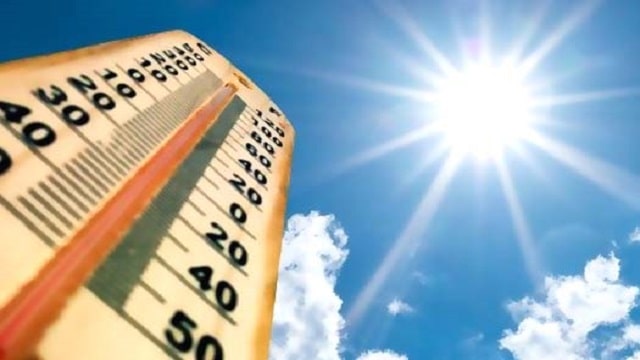Hyperthermia
Hyperthermia is a condition that occurs when the body temperature rises above normal. Normal body temperature is between 36 – 37.5 degrees Celsius. This hyperthermia occurs due to high environmental temperatures and the body is no longer able to adapt to these extreme changes. A person is said to have hyperthermia if the body temperature is above 40 degrees Celsius.
But make no mistake, hyperthermia is not the same as fever. When you have hyperthermia, your body temperature rises above a certain point controlled by the hypothalamus. However, when you have a fever, the hypothalamus increases your body temperature to a certain point with a specific purpose, namely fighting infections that occur in the body.
Symptoms of Hyperthermia
Hyperthermia is characterized by increasing body temperature to above 40 degrees Celsius. In addition, hyperthermia sufferers will also feel excessive thirst even though they have consumed water.
People with hyperthermia will also experience other symptoms, such as difficulty sweating, changes in heart rate, red skin, confusion, dizziness, impaired vision, low blood pressure, fatigue, nausea, vomiting, and weakness.
Risk Factors for Hyperthermia
Several conditions are also known to increase a person’s risk of experiencing hyperthermia. These conditions include:
- Dehydration.
- Elderly, because the function of sweat glands and blood circulation has begun to decline.
- Under 4 years of age.
- Suffering from kidney, heart, and lung disorders.
- Suffering from high blood pressure who are on salt restriction.
- Are taking certain medications, such as diuretics, anesthetics, and blood pressure medications.
- Alcohol abuse.
- Obese or too thin.
Causes of Hyperthermia
Hyperthermia is caused by exposure to extreme temperatures that the body can no longer regulate. This happens because the body absorbs more heat than it releases. Normally, sweat is the body’s mechanism in an effort to cool the body, but in people with hyperthermia, sweat is unable to maintain normal body temperature. This condition causes the increase in body temperature to continue to occur.
Doing heavy activities and sports in very hot weather with direct exposure to sunlight is one of the main causes of hyperthermia. However, there are also several other causes, such as:
- Not drinking enough water.
- Not having good air circulation in the house.
- Wearing clothes that are too thick in hot weather.
Diagnosis of Hyperthermia
Doctors can easily recognize hyperthermia through the physical symptoms experienced by the sufferer, supported by body temperature measurements using a thermometer. If the body temperature exceeds 40 degrees Celsius, then it is certain that the sufferer is experiencing hyperthermia. This condition can also be diagnosed by conducting further examinations, such as urine tests or blood tests.
Hyperthermia Treatment
Hyperthermia treatment is done by securing the sufferer from conditions that cause their body temperature to increase drastically. Steps that can be taken include:
- Stop the activity you are doing.
- If you are wearing thick clothes, immediately change into thin clothes.
- Move the sufferer to a cool place, preferably to a place with good air circulation or one that has air conditioning.
- Cold compresses especially on the wrists, neck, armpits, and groin.
- Give the sufferer a drink if he/she is still conscious.
- Avoid giving tea and coffee which contain caffeine.
Complications of Hyperthermia
Hyperthermia conditions that are not treated properly can cause someone to experience heat stroke. This risks causing damage to various organs of the body, thus disrupting the overall function of the body.
Hyperthermia Prevention
Hyperthermia can be prevented in several ways, namely:
- Avoid activities under the hot sun when the weather is hot.
- If necessary, use body protection, such as a wide-brimmed hat or umbrella.
- Wear loose, light clothing that is not thick or layered when you have to do activities in hot environments.
- Drink plenty of water at all times to avoid dehydration.
- Do not leave children in closed cars in open spaces or parking buildings.
- Immediately seek shelter and enter a room with air conditioning or good air circulation when you start to feel weak or have a headache.
When to See a Doctor?
If your family or relatives experience some of the signs or symptoms mentioned above or if you have any questions, discuss them with your doctor. To get checked, you can now make an appointment with a doctor at the hospital of your choice.

